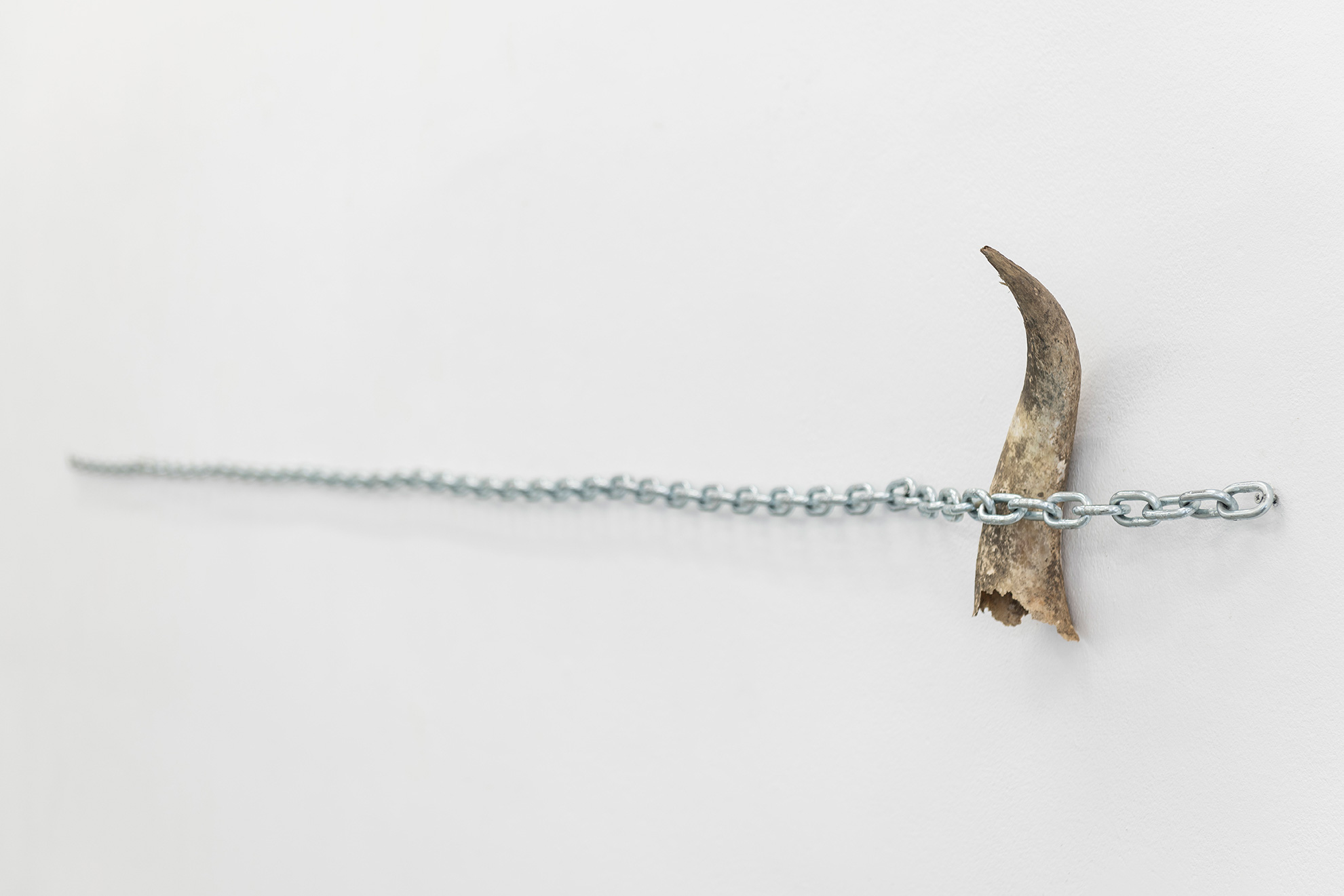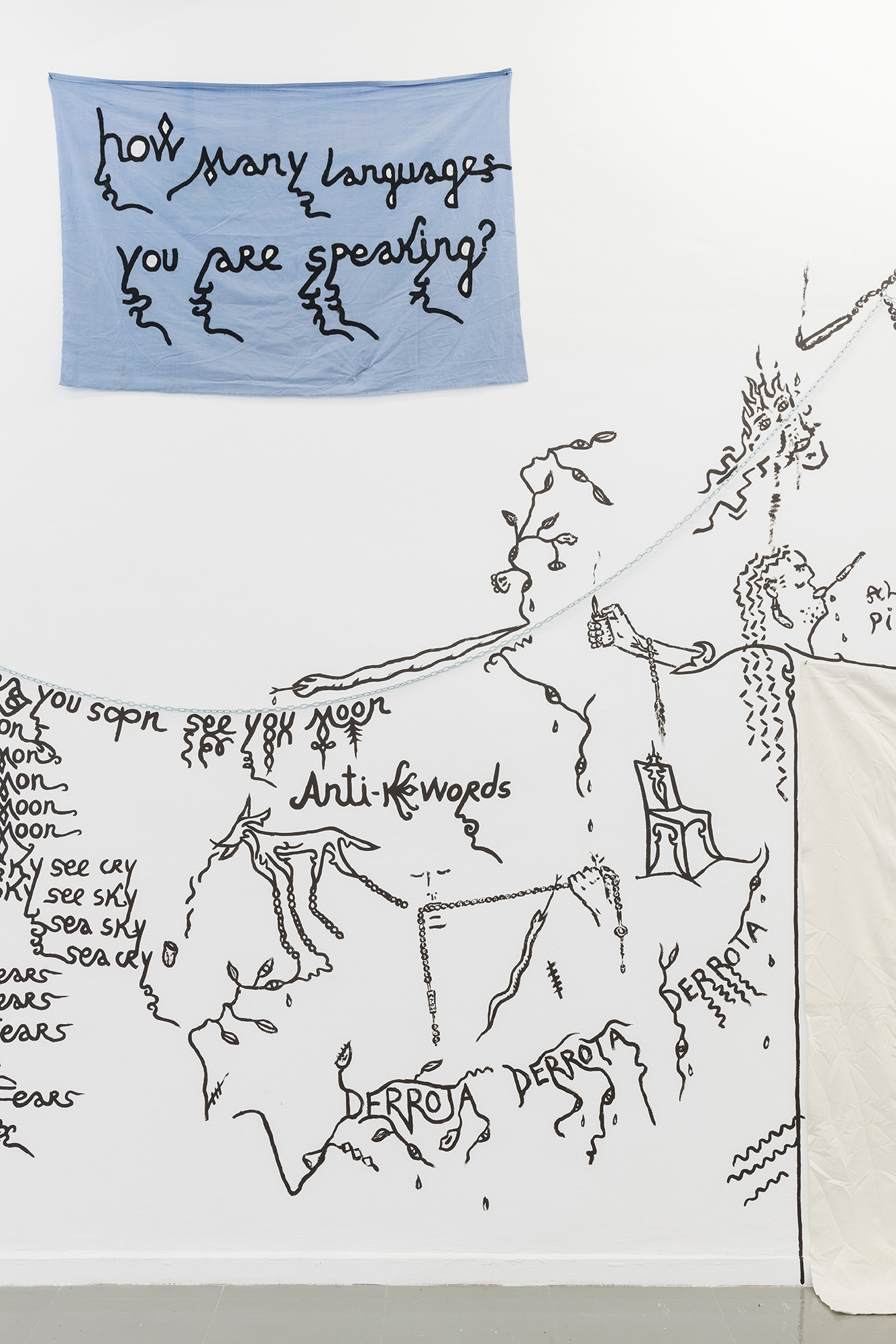19 January – 13 March 2020
Barcelona
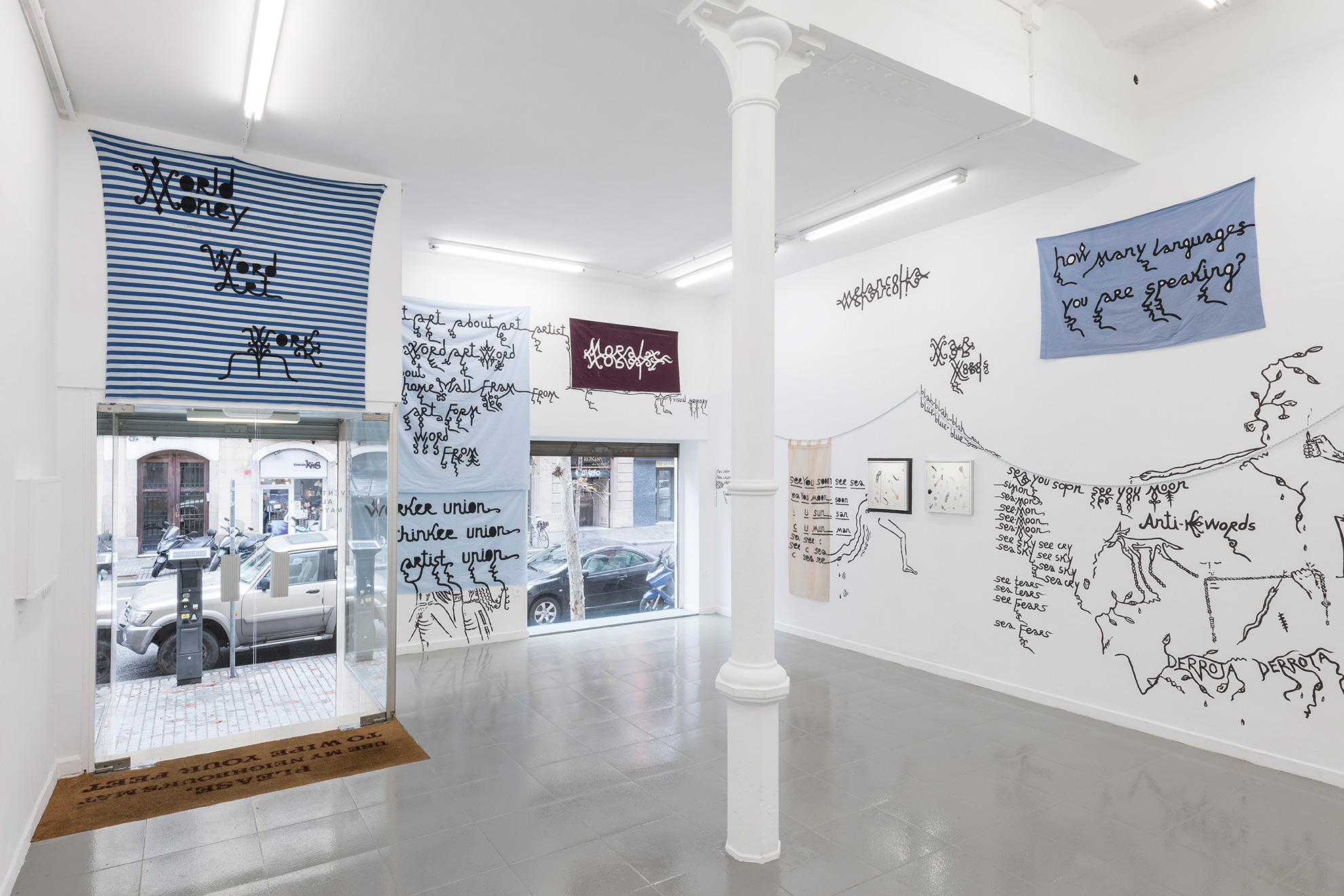
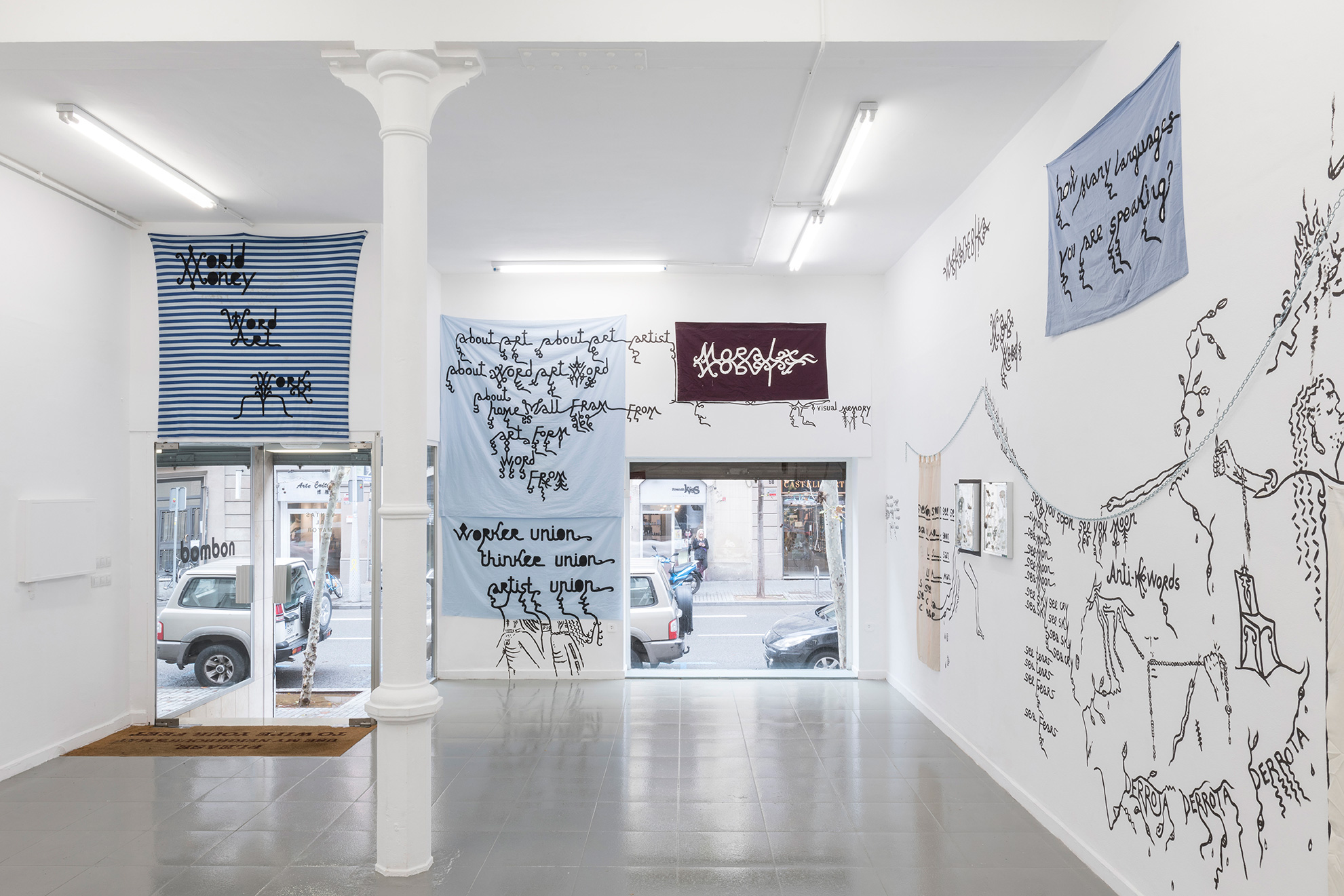

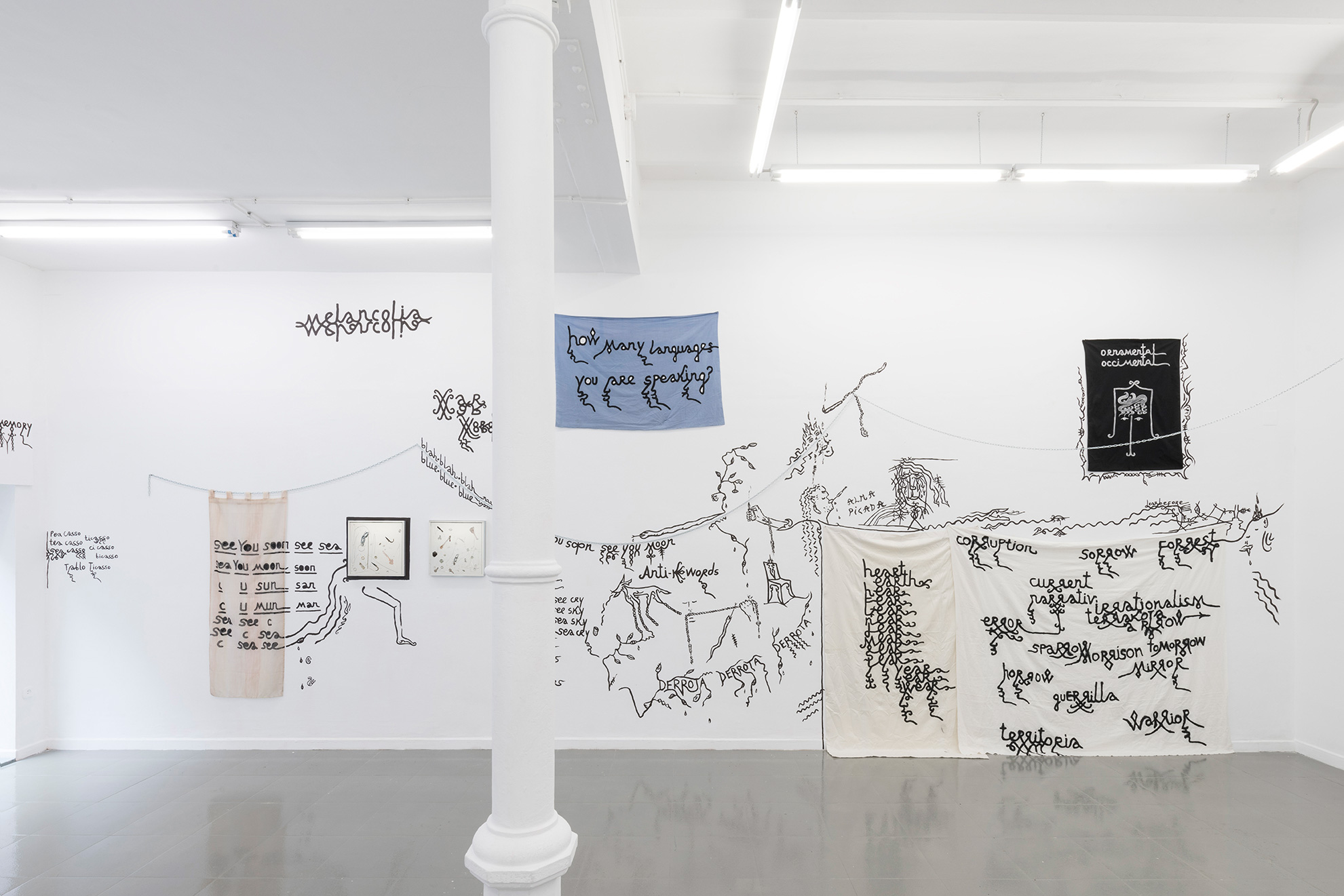
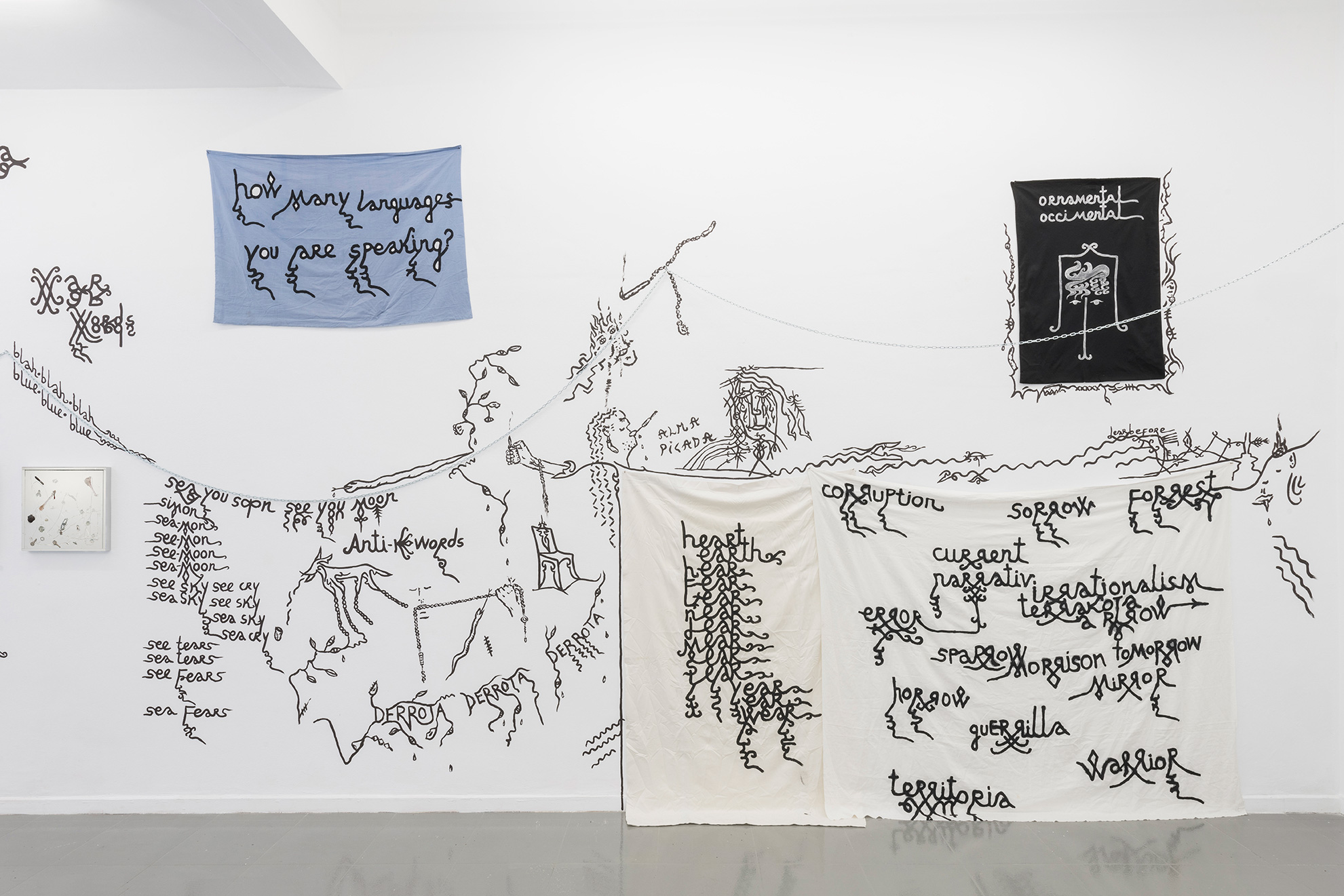
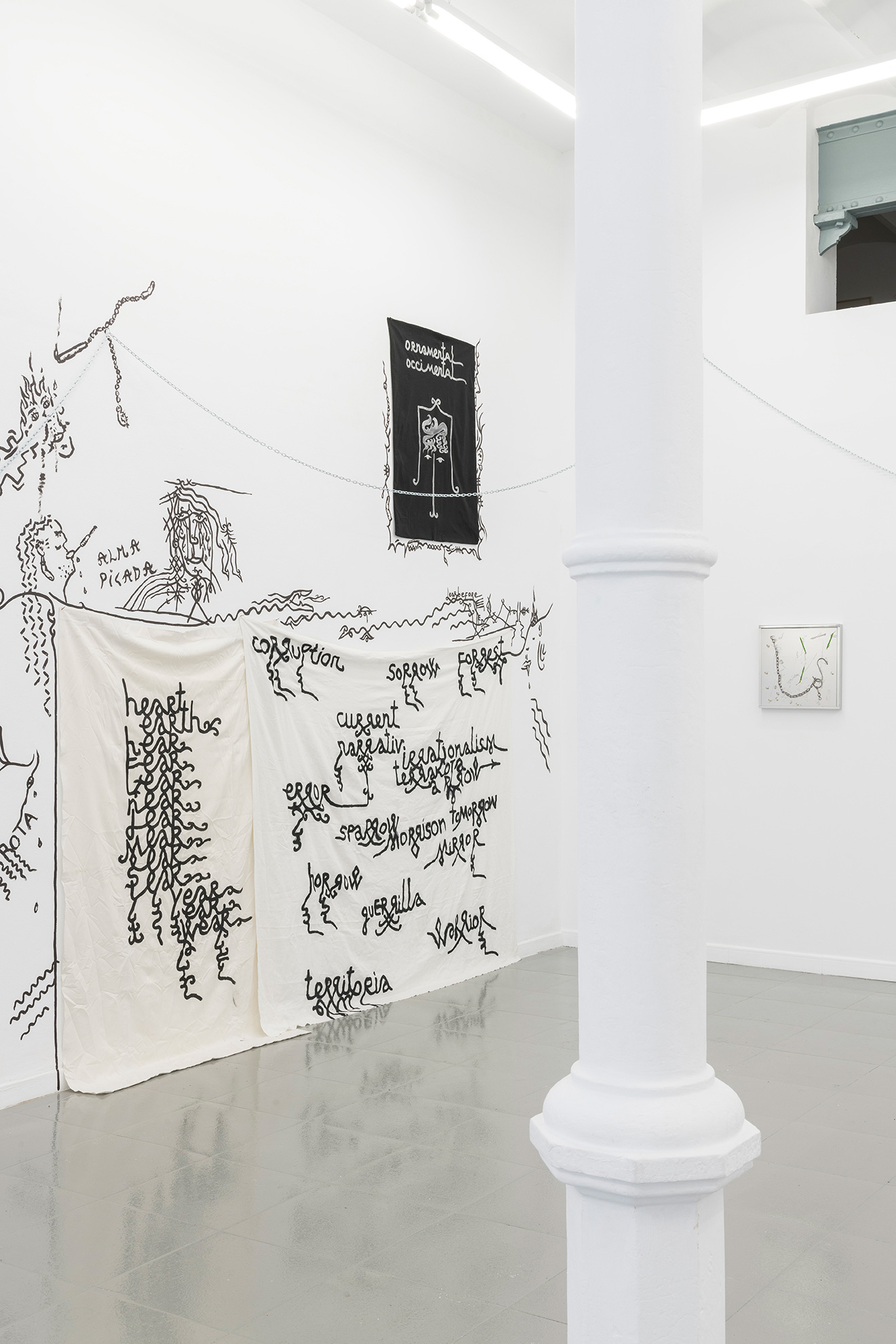
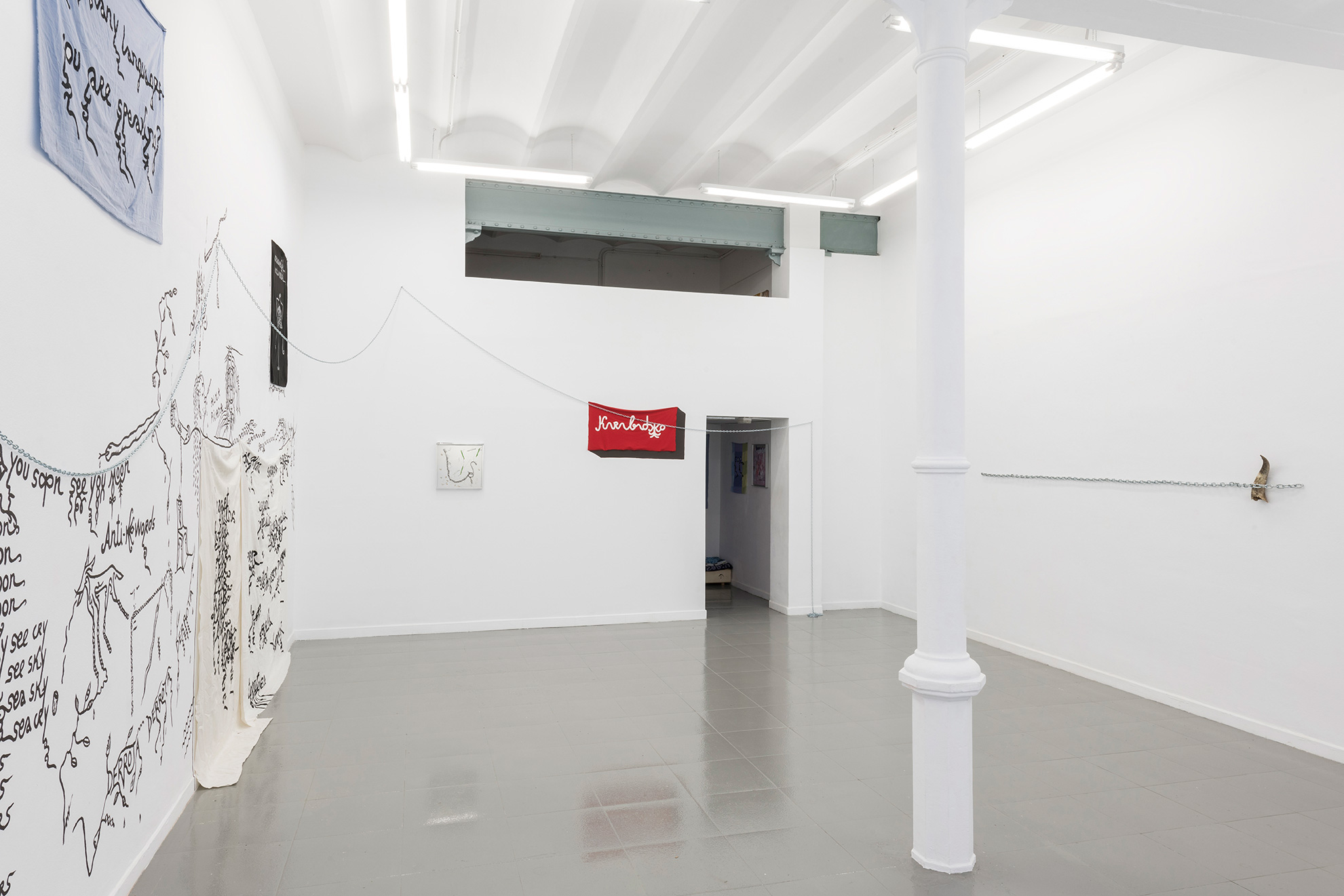
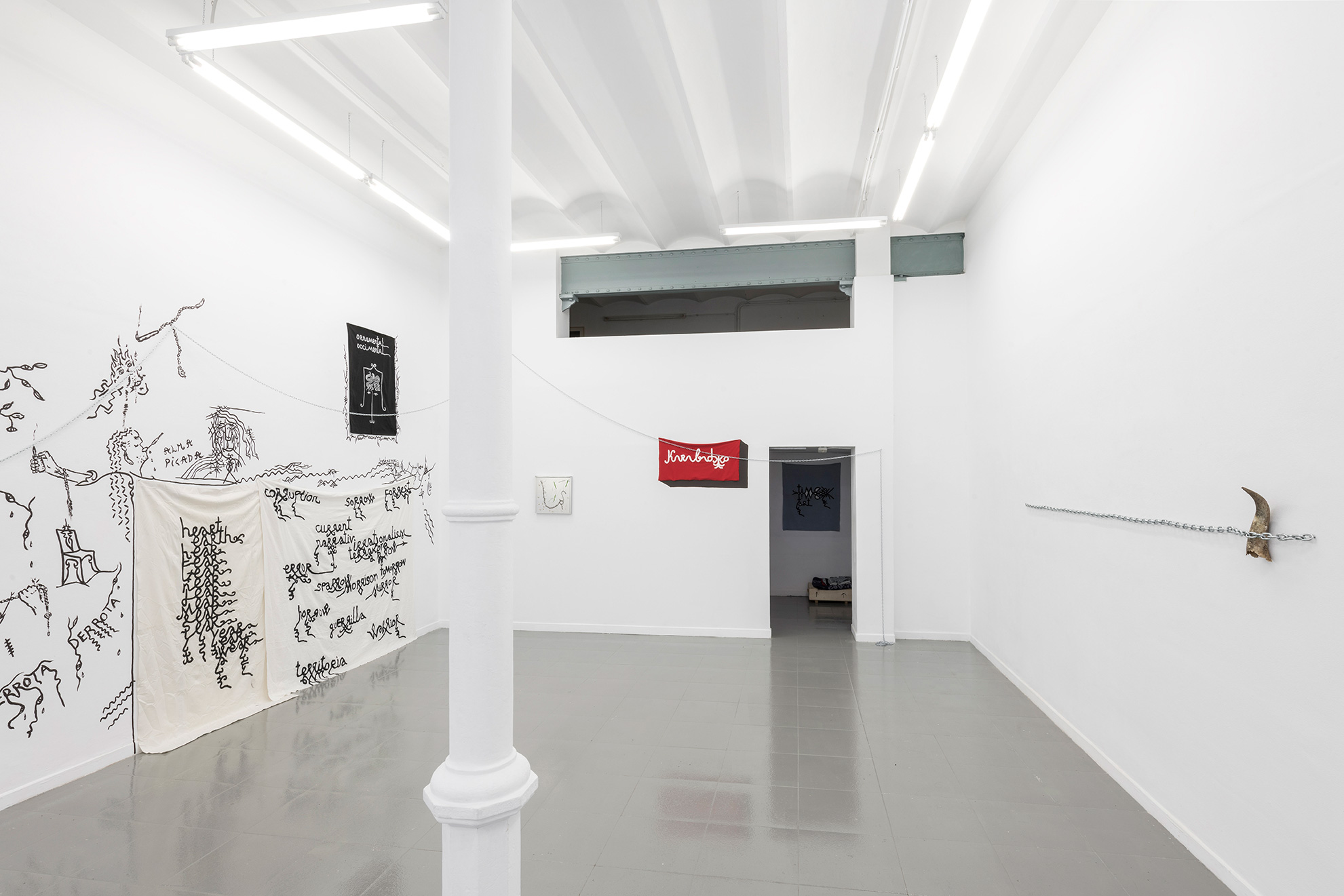



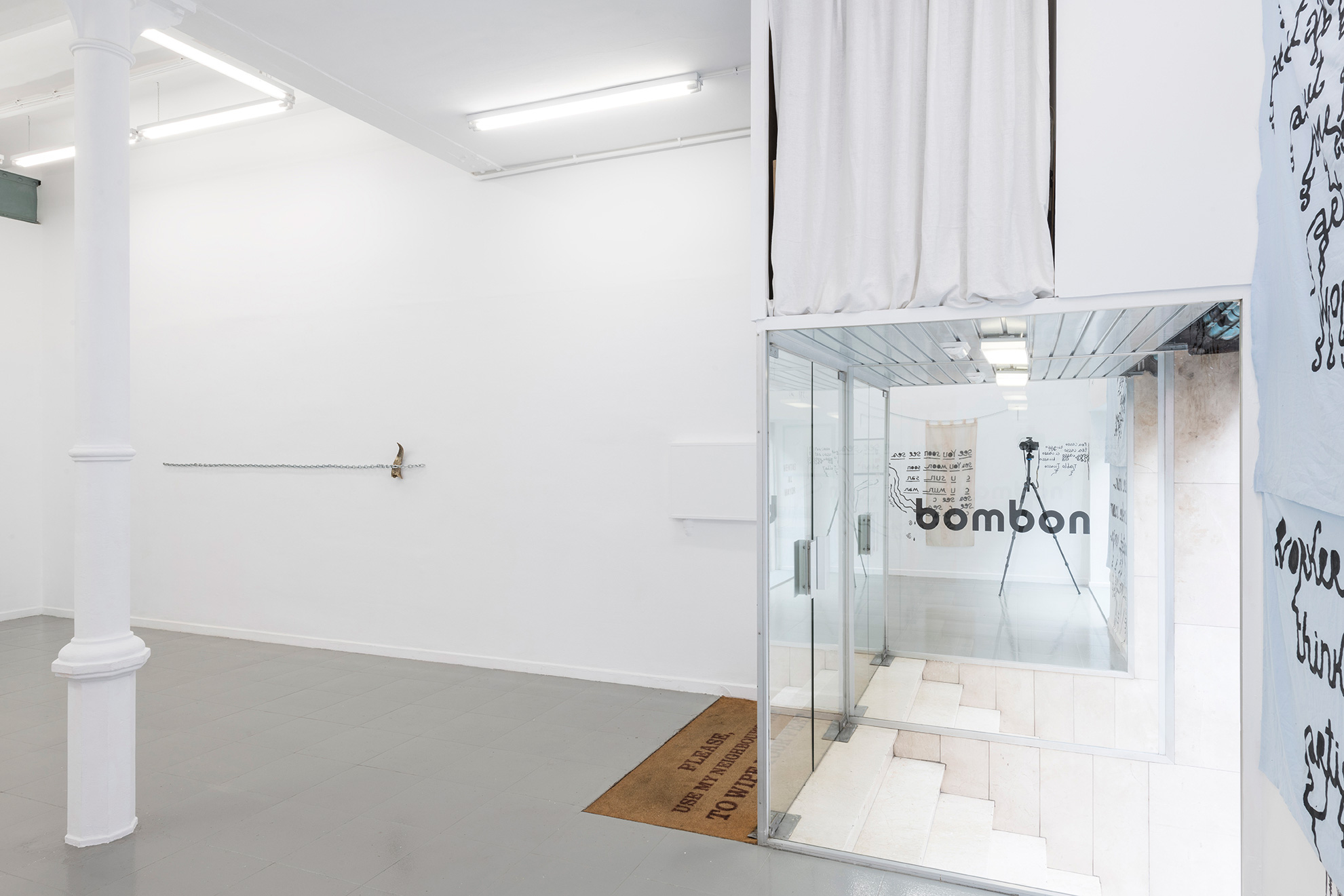
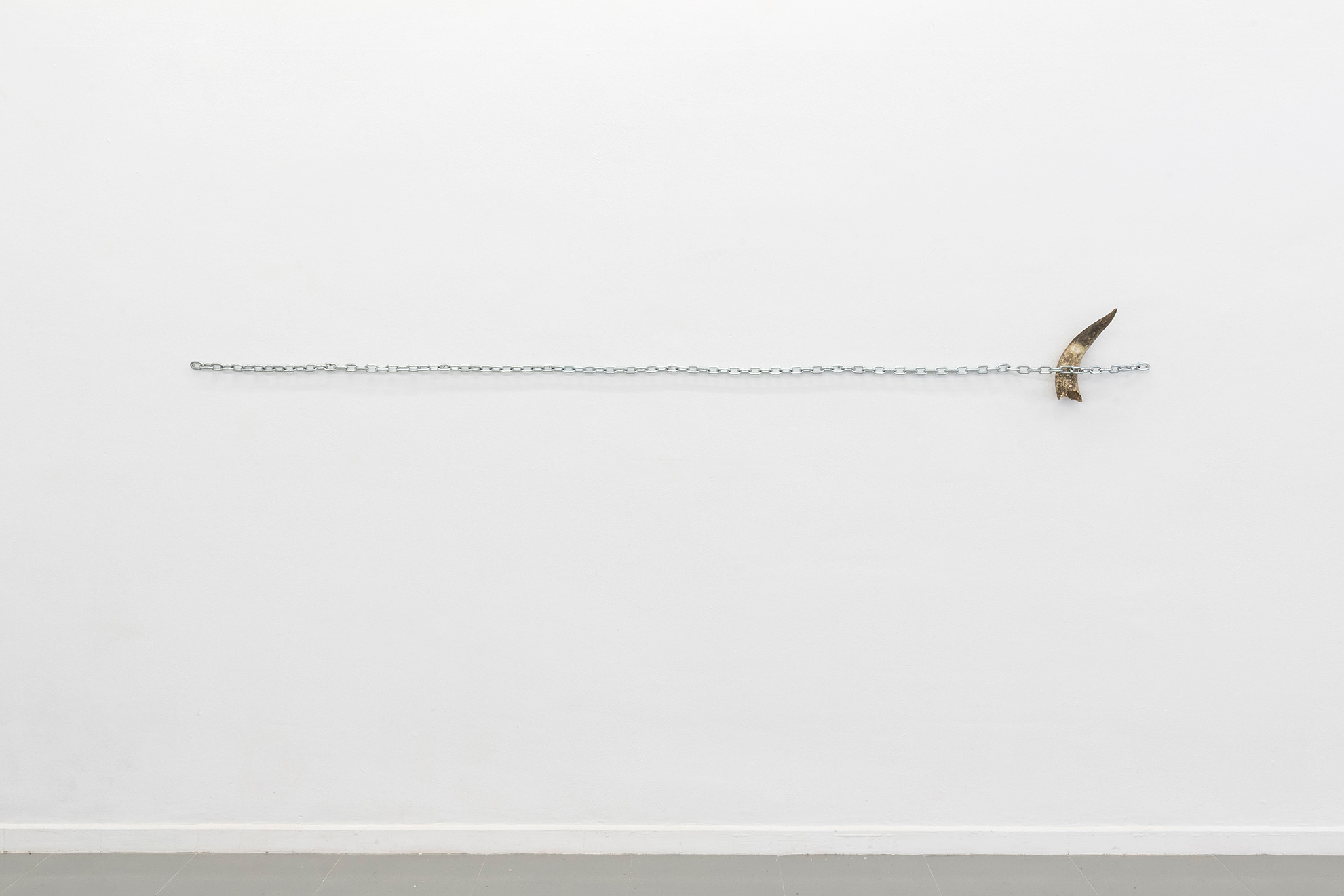
“… My work speaks about my current life in France, in Europe, about what I read in the news, on Facebook: refugees, fascism, capitalism. In these terrible times –with Syria, Iraq and Afghanistan totally destroyed, with the climate catastrophe and terrorism- I can’t be tolerant and polite about everything.” (Babi Badalov, Afterall Magazine)
Mauro showed up in my parent’s home around 8 or 9 years ago. I didn’t have a clue who he was at the time, I only knew he was a Portuguese artist who would spend a few summer days with us while her girlfriend participated at the Jafre Biennial.
Even though Mauro wasn’t exhibiting, since then he became a referent for me as an artist, and a radar to detect other artists. And it is like this, through Mauro, how I met Babi Badalov, in Porto, a few years later, at the opening of his exhibition at Uma certa falta de coerencia, Mauro’s project space.
At Coerencia, Babi had painted the walls with symbols that at the same time were images and writing: a mixture of different languages and alphabets that together created poetic messages that at the same time were critical and radical.
The work of Babi explores the limits of language and the borders that it imposes on people. His plays on words annihilate conventions, they laugh at the grand names and at prefabricated sentences. His own biography has brought him to talk about migration, anticapitalism, decolonization, identity, spiritualty and orientalism.
At the same time that I met Babi and his work, I also got to know Rua do Caldereiros, the street where Mauro has Coerencia and his studio, and where many of the sources he works with cohabit: the characters that live and pass thorough there, its little businesses, the workshops, the restaurants that have been there for ages….
In Coerencia and with all these people; artist from Porto, neighbours, friends of Mauro, Babi… it was inevitable not to feel part a family.
Mauro’s work is in permanent connection with the everyday of the people and the street. Through personal stories, found objects, exchanges or collaborations with his neighbours, he explores the popular iconography of the history of the city and the street, from where he constructs a narrative that circulates through all his works.
A few days ago I read Babi in Afterall magazine saying that maybe he has no need to claim that he’s a political artist. That what is important for him is to be part of the world –and the art world too- where such things are addressed and discussed.
I think that Mauro doesn’t have this need neither, and I even imagine that it can be fatiguing and limiting the label of “the artist that talks about the gentrification of Porto”. But it is evident that all of this is part of his work, and it is evident that him and Babi are political artists, or better said, coherent and engaged artists who work from the quotidian, about their lives and what surrounds them, what they like and what bothers them, with spontaneity and not sheltered under the umbrella of any big concept, terminology o behind any label.
For me, both of them are artists who work from affective relationships, from intimacy and proximity, to talk about personal matters that for some reason end up becoming universal and present. And it is for this reason that it is very special for me this meeting here, at Bombon, with these two great artists and friends.
Bernat Daviu
Read More